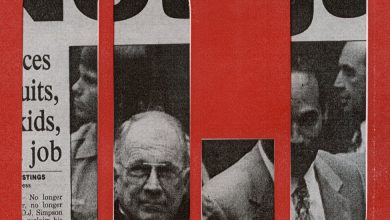Happy 20th Anniversary, Gmail. I’m Sorry I’m Leaving You.

There are no end of theories for why the internet feels so crummy these days. The New Yorker blames the shift to algorithmic feeds. Wired blames a cycle in which companies cease serving their users and begin monetizing them. The M.I.T. Technology Review blames ad-based business models. The Verge blames search engines. I agree with all these arguments. But here’s another: Our digital lives have become one shame closet after another.
A shame closet is that spot in your home where you cram away the stuff that has nowhere else to go. It doesn’t have to be a closet. It can be a garage or a room or a chest of drawers or all of them at once. Whatever the container, it is defined by the absence of choices about what goes into it. There are things you need in there. There are things you will never need in there. But as the shame closet grows, the task of excavation or organization becomes too daunting to contemplate.
The shame closet era of the internet had a beginning. It was 20 years ago this past Monday that Google unveiled Gmail. If you were not an internet user back then, it is hard to describe the astonishment that greeted Google’s announcement. Inboxes routinely topped out at 15 megabytes. Google was offering a free gigabyte, dozens and dozens of times more. Everyone wanted in. But you had to be invited. I remember jockeying for one of those early invites. I remember the thrill of finding one. I felt lucky. I felt chosen.
A few months ago, I euthanized that Gmail account. I have more than a million unread messages in my inbox. Most of what’s there is junk. But not all of it. I was missing too much that I needed to see. Search could not save me. I didn’t know what I was looking for. Google’s algorithms had begun failing me. What they thought was a “priority” and what I thought was a priority diverged. I set up an auto-responder telling anyone and everyone who emailed me that the address was dead.
Behind Gmail was an astonishing technological triumph. The cost of storage was collapsing. In 1985, a gigabyte of hard driven memory cost around $75,000. By 1995, it was around $750. Come 2004 — the year Gmail launched — it was a few dollars. Today, it’s less than a penny. Now Gmail offers 15 gigabytes free. What a marvel. What a mess.
Gmail’s promise — vast storage mediated by powerful search tools — became the promise of virtually everything online. According to iCloud, I have more than 23,000 photos and almost 2,000 videos resting somewhere on Apple’s servers. I have tens of thousands of songs “liked” somewhere in Spotify. How much is jotted down in my Notes app? How many conversations do I have stored in Messages, in WhatsApp, in Signal, in Twitter and Instagram and Facebook DMs? There is so much I loved in those archives. There is so much I would delight in rediscovering. But I can’t find what matters in the morass. I’ve given up on trying.



